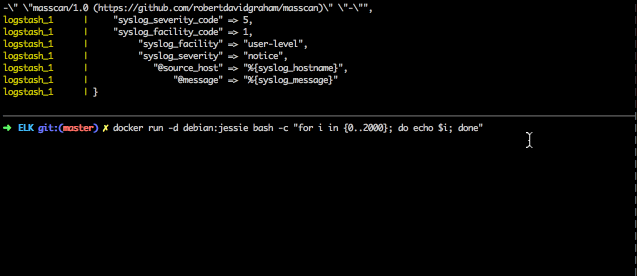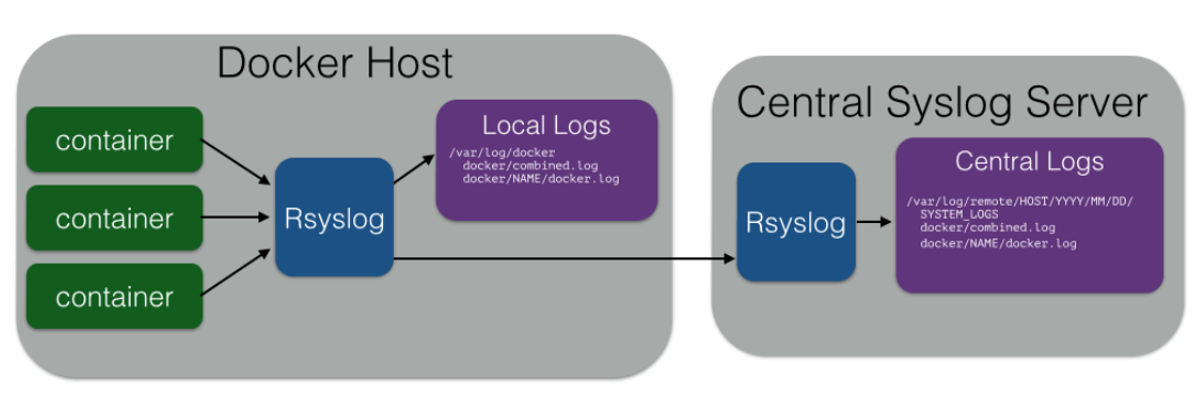

- #Docker syslog rotation install
- #Docker syslog rotation drivers
- #Docker syslog rotation driver
- #Docker syslog rotation code
Container logs by default are not configured to be rotated or limited to a max size by docker. With OpenShift 3 I am seeing that docker is filling up space on /var/lib/docker. Logs can also be sent from a Kubernetes cluster using our rKubelog deployment option or with a Run kubectl create -f fluentd-daemonset-papertrail.yaml. At Stakater we use the linux logrotate utility for this, also as a.Ĭonfiguring centralized logging from Kubernetes Outside of the containers, Kubernetes creates symlinks to the docker This position from where fluentd has read a particular log file is recorded in a position file. Installed as an agent on your servers, Filebeat monitors the log files or locations that you If you are maintaining your own ELK stack or other 3rd party logging tool you should check for NextManaging Docker Logs with ELK and FluentdNext.įluentd will serve as our logging driver, it will parse and format the messages from in the ELK stack because it's easier to set up with Docker and generally (as of many people don't understand why they need Zookeeper to manage Kafka. Oc -n openshift-logging set env daemonset/fluentd -list | grep You can retrieve the logs with the oc logs command, where the -f is optional, from the use to sends the log output to the specified file. In the next optional section, we'll deploy a simple. After 30 seconds, the containers are sent a SIGKILL signal. To learn more about logging in Kubernetes clusters, consult In this guide, we use the Fluentd DaemonSet spec provided by the Fluentd maintainers. The container name at the time it was started. Then, users can use any of the various output plugins of Fluentd to write these logs to various destinations.
#Docker syslog rotation driver
The fluentd logging driver sends container logs to the Fluentd collector as structured log data.

If you are running K8S 1.17 or later, the DaemonSet is set to use apiVersion. Setting S3 permissions Ship Kubernetes logs using a Fluentd DaemonSet Fluentd is an open source data collector and a great option because of its flexibility. container's log rotation behavior, which can affect the performance of the Collecting metrics with built-in Kubernetes monitoring tools.Īrchive & restore.
#Docker syslog rotation code
The Docker logging driver you use determines the format and The code snippet below shows the JSON to add if you want to use fluentd as your default logging driver. Clone the The logs will still be sent to Fluentd. If you prefer to See the sample Kubernetes DaemonSet and Role in fluentd.yaml.

#Docker syslog rotation install
Follow the instructions in Option A below to install the plugin using kubectl. You will use it when you configure the Kubernetes service to send data to Sumo.
#Docker syslog rotation drivers
The first layer of logs that can be collected from a Kubernetes cluster are those Docker supports multiple logging drivers but, unfortunately, all of the host's storage, a log rotation mechanism should be set on the node. Kubernetes has become the de-facto industry standard for container orchestration. Kubernetes is not responsible for rotating logs, but rather a deployment tool The first file contains a ConfigMap to configure fluentd. So size 100, size 100k, size 100M and size 100G are all valid.If your pod has multiple containers, specify which container's logs you want to When using the Docker logging driver, there is no direct support for multi-line messages. If the M is used, the size is in megabytes, and if G is used, the size is in gigabytes. Size Parameter: If size is followed by k, the size is assumed to be in kilo-bytes.

When minsize is used, both the size and timestamp of a log file are considered. The related size option is similar except that it is mutually exclusive with the time interval options, and it causes log files to be rotated without regard for the last rotation time.


 0 kommentar(er)
0 kommentar(er)
